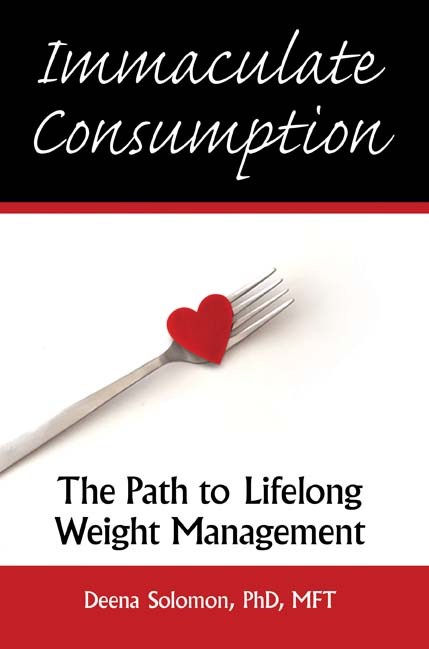My old friend Howard Steinberg, a practicing Orthodox Jew for over five decades, loves to fast. He sees it as a detox from accumulated sin that deprives him from greater spiritual growth.
“Fasting is about my spirituality,” he said. “Even though I feel hunger, I focus on the meaning of the day, and my relationship with people and God. It is a total focus on my spirit. If I think of food, then I am thinking of feeding my body. It is a time that I focus on feeding my soul.”
At the end of a typical fast, Steinberg feels euphoric. On Yom Kippur, particularly, Steinberg is “ready to face the coming year with excitement. I feel like I am on a higher plane.”
While Steinberg feels enthusiastic about the impending spiritual journey, those in the overweight population will often focus on the thought of going hungry, rather than the spiritual reasons behind the fast.
During my 30+ years of operating a weight management practice, I’ve encountered people who experience tremendous anxiety in anticipation of fasting, even if it’s only for one day. Those with a history of overeating will do anything to prevent themselves from getting overly hungry since binge-type patterns are often the result of fasting events. Fasting becomes a hardship for them since getting too hungry, even for one day, can result in behavioral eating patterns that can often have detrimental effects for weeks or months afterwards.

Dr. Deena Solomon, a Santa Monica-based weight management expert.
Depriving the body of food often puts people in situations where they’re subjected to irresistible temptations. Choices are then made for immediate pleasure, often going against their long-range weight loss and weight management goals. During the fast and afterwards, the overweight population often relies on willpower and self-control for staying away from food during a fast. Willpower is relied upon afterwards in order to not overeat.
The problem? Willpower implies something in your psychological makeup that allows you to do the hard job to overcome temptations and stick to your goals. One is forced to control eating behaviors – refusing to do what one shouldn’t do even though she wants to do it. The problem with willpower alone is that it may not work. Willpower doesn’t provide you with the necessary skills to guard against temptation, cravings, and binge eating.

Dr. Deena Solomon’s new book, “Immaculate Consumption.”
So I employ cognitive and behavioral strategies where possible, making it effective willpower: the use of foresight, self-analysis, and planning to avoid feelings of being out-of-control with food choices as a result of being too hungry. These are the skills whereby someone with weight management issues can experience feeling a lot more in control in spite of being overly hungry.
Here is how you can employ effective willpower during a Jewish fast day.
- Pre-plan the day before the fast to manage anxiety. Preplan what’s going to be eaten the day after the fast, so that you are more in control.
- Make sure the last meal before the fast is eaten later in the day. This helps with the day of the fast.
- Consume more protein the day before, which results in feeling more sated during the day of the fast.
- Have a big bowl of soup as a start to the meal. This will help manage feelings of hunger prior to the meal being served. Research has shown that having hot liquids before a meal calms down hunger.
- Reframe your perspective about fasting. Then, you will develop a better understanding of the spiritual reasons behind the fast. By refocusing anticipatory anxiety towards your spirituality and strategies you’ll take to feel more sated, you can look forward to feeling uplifted and spiritually renewed before, during, and after the fast.
These suggestions are the result of “Top-Down” kinds of decision making. Being exposed to this kind of information can help you learn new ways to eat based on the theory of behaviorism.
The end result? You will feel more in control of your fasting experience.
How did Odysseus’ behavior differ from the behavior of the men who were lured to their death by the Sirens? He planned ahead and exercised skill in guarding against temptations. It’s a great example of successful self-direction, or effective willpower.
- Fearless Fabulous You - May 13, 2018
- THE ERIC HOFFER AWARD FOR BOOKS - May 3, 2018
- Sheila Glazov: Your Brain’s ‘Color’/Deena Solomon: Weight Loss - May 2, 2018




Leave A Comment
You must be logged in to post a comment.